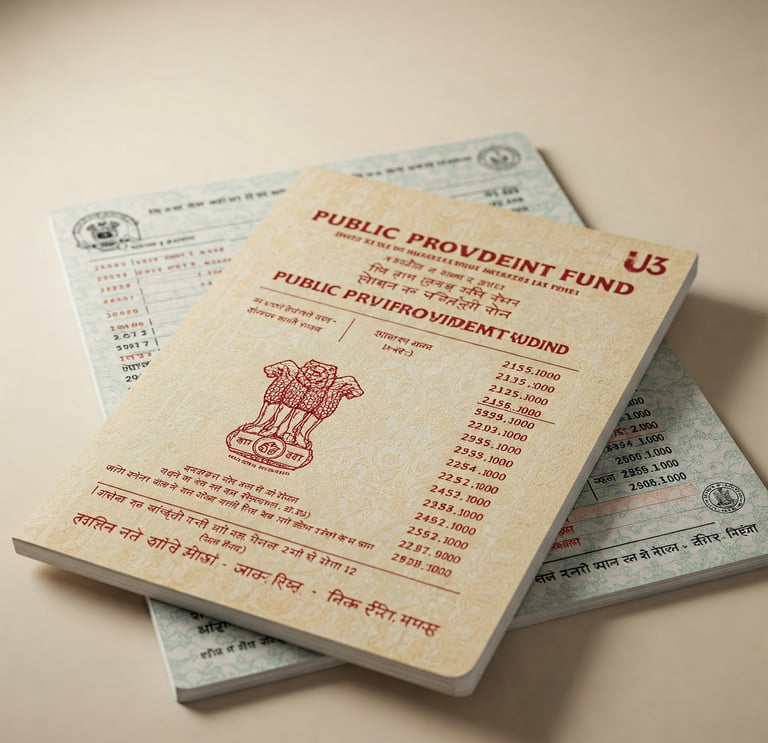

Investing is crucial for building wealth and achieving your long-term financial objectives. When you invest your money in assets like stocks, bonds, or real estate, you're allowing it to grow over time, often at a rate faster than inflation, which helps you maintain or increase your purchasing power. Investing allows you to save for big goals in life, such as buying a home, paying for education, or enjoying a comfortable retirement. Plus, the earlier you start investing, the more you can take advantage of compound interest, where your earnings generate even more earnings. This compounding effect can make a huge difference in your financial future.
Investing
Top 10 Best Ways To Invest Money
A stock is a small piece of a company that you can buy. When you own a stock, you own part of that company. Companies sell stocks to get money for their business. People can buy and sell stocks on the stock market. If the company performs well, the value of your stock may increase, allowing you to make a profit.
Key Benefits
High Returns: Historically, stocks have provided higher returns compared to other investment options over the long term.
Dividends: Many companies pay dividends, providing a source of income in addition to potential price appreciation.
Exchange Traded Funds (ETFs)


An ETF, or exchange-traded fund, is a type of investment that allows you to purchase a diversified portfolio of assets, such as stocks or bonds, all at once. You can buy and sell ETFs on the stock market just like regular stocks, and they usually cost less than some other investment options. ETFs are popular because they help you spread out your risk and make investing easier for most people.
Key Benefits
Lower Fees: ETFs generally have lower expense ratios than mutual funds.
Flexibility: You can buy and sell ETFs throughout the trading day at market prices.
Mutual Funds


A mutual fund is a way for many people to put their money together to buy things like stocks or bonds. A professional manager takes care of picking what to buy. This helps spread out the risk and makes it easier for regular people to invest. When the fund makes money, each person gets a share based on how much they put in.
Key Benefits
Diversification: Investing in mutual funds spreads risk across various assets.
Professional Management: Fund managers make investment decisions based on research and expertise.
Public Provident Fund (PPF)


The Public Provident Fund (PPF) is a savings plan offered by the Indian government. It helps people save money for the long term. You can put in at least ₹500 and up to ₹1.5 lakh every year. The government gives you interest on your savings, and the current rate is 7.1% per year. The money you save in PPF is safe and gets tax benefits—you pay less tax because of it. The account lasts for 15 years, but you can keep it going longer if you want.
Key Benefits
Tax Benefits: Contributions are eligible for tax deductions under Section 80C.
Capital Protection: The principal amount is secure as the government backs it.
Bonds


A bond is like lending money to a government or a company. When you buy a bond, you give them money now, and they promise to pay you back the money later, plus extra money called interest. Bonds are usually safer than stocks and give you regular payments. They are a good way to earn money from your savings if you want less risk.
Key Benefits
Steady Income: Bonds provide regular interest payments, making them suitable for income-focused investors.
Lower Risk Compared to Stocks: Bonds are generally less volatile than stocks.
Unit Linked Insurance Plans (ULIPs)


A ULIP is a type of plan that gives you both life insurance and the chance to invest your money at the same time. When you pay your premium, some of the money goes towards your life insurance, and the rest is invested in things like stocks or bonds. You can usually choose where your money is invested, and after a certain time, you may be able to take some money out if you need it.
Key Benefits
Dual Benefit: Provides both insurance coverage and investment growth potential.
Tax Benefits: Premiums paid are tax-deductible under Section 80C.
National Savings Certificate (NSC)


The National Savings Certificate (NSC) is a savings plan offered by the Indian government through post offices. It is a safe way to invest your money for five years, and you earn a fixed interest rate (about 7.7% per year). The interest is added up and given to you when the certificate matures. By investing in NSC, you can also save on your income tax because it is eligible for tax benefits under Section 80C of the Income Tax Act.
Key Benefits
Guaranteed Returns Over Fixed Terms: NSCs provide fixed interest rates over a set period (usually five years).
Tax Benefits: Investment up to 1.5 lakh per year is eligible for tax deduction under section 80C.
Gold


Gold is a popular investment because it helps keep your money safe when prices are rising or the economy is shaky. You can buy real gold like coins or jewelry, or invest in gold funds and bonds online. People like gold because its value usually stays stable and it’s accepted all over the world.
Key Benefits
Hedge Against Inflation: Gold tends to retain its value during economic downturns.
Liquidity: Gold can be easily sold or converted into cash when needed.
Real Estate


Investing in real estate means buying properties—such as houses, land, or buildings—to generate income, not just to live in. People do this to earn rental income or to sell the property later for a higher price. Real estate can be a good way to grow your money and protect against inflation, but it can also be risky. You need to know the market and manage your property well. You can invest in real estate by buying property directly or by utilizing options such as REITs (Real Estate Investment Trusts) or online platforms that allow multiple people to invest together.
Key Benefits
Appreciation Potential: Real estate values can increase significantly over time.
Rental Income: Properties can provide a steady cash flow through rental income.
Post Office Saving Schemes


Post office schemes are safe ways to save and invest money, offered by the Indian government. There are different types, like savings accounts, fixed deposits, and special plans for senior citizens or girls. These schemes give you good interest rates and are very safe because the government backs them. Anyone can join these schemes easily at any post office, and some even help you save on taxes.
Key Benefits
Safety and Security: Backed by the government, these schemes offer guaranteed returns.
Tax Benefits Available on Certain Schemes: Some post office schemes qualify for tax deductions under Section 80C.


